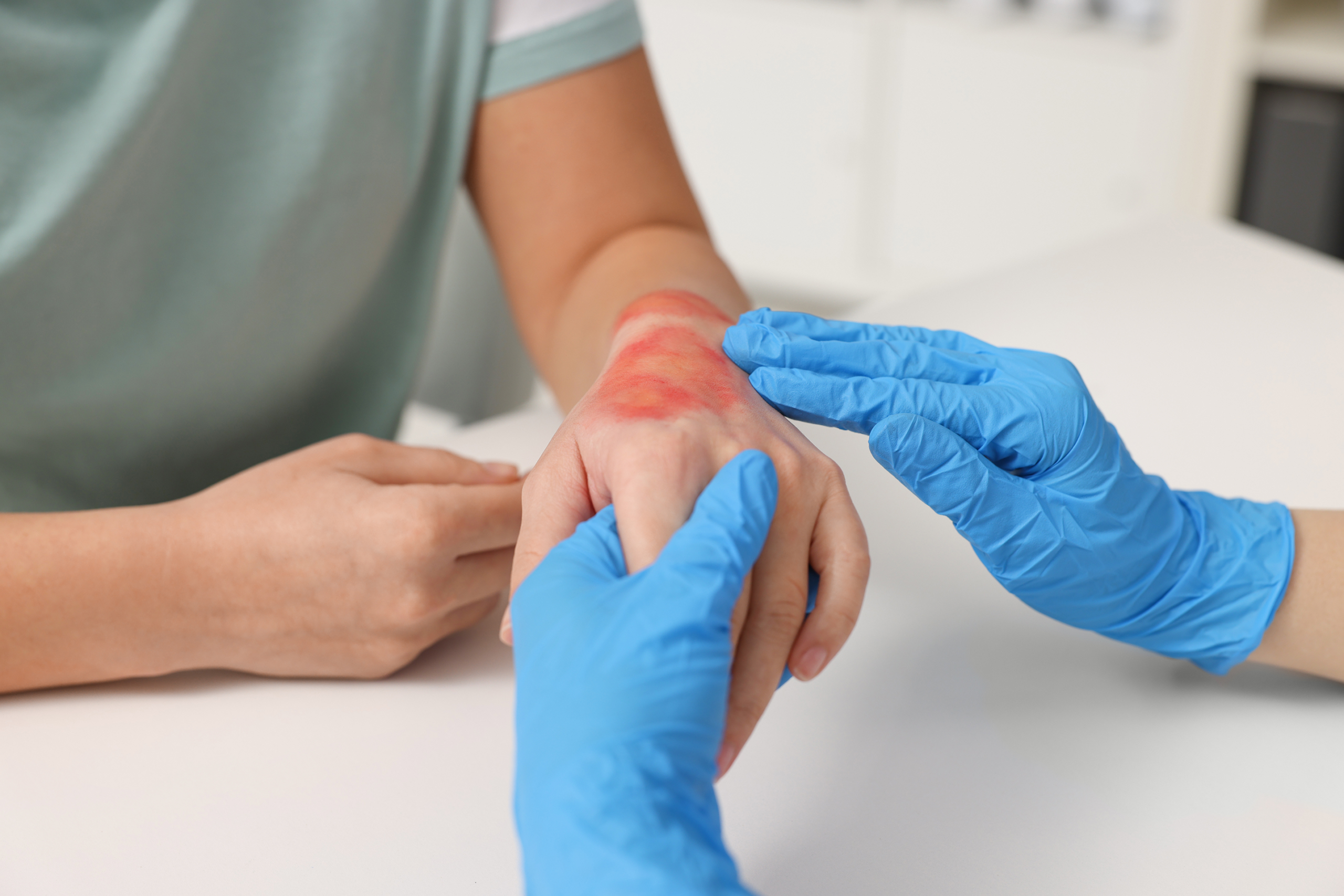Chronic wounds, diabetic ulcers, pressure sores, and other complex wounds can significantly impact daily life, mobility, and overall well-being. A wound care doctor provides specialized care that goes beyond basic treatment, offering advanced therapies and personalized plans to support faster healing. These medical professionals combine clinical expertise, modern technology, and compassionate patient care to ensure wounds heal safely while addressing the person behind the condition.
What a Wound Care Doctor Does
A wound care doctor evaluates, diagnoses, and treats a wide range of wound types. Their expertise extends from chronic and slow-healing wounds to acute injuries and post-surgical complications. Each patient receives a personalized care plan that targets the specific wound type, underlying causes, and potential risk factors. Wound care doctors also provide education on self-care practices to prevent recurrence and improve overall health.
Patients with diabetes, limited mobility, or vascular issues benefit from seeing a wound care doctor early, as timely intervention reduces complications and speeds recovery. By combining medical knowledge, hands-on treatment techniques, and patient guidance, wound care doctors play a critical role in restoring health, preventing infections, and improving quality of life.
Advanced Wound Assessment and Diagnosis
Wound care doctors use evidence-based tools and techniques to assess wounds accurately. A thorough assessment includes measuring wound size, depth, tissue type, and signs of infection. Advanced diagnostic tools, such as imaging or tissue analysis, help determine underlying issues that may slow healing, including poor blood flow or neuropathy.
Accurate evaluation allows wound care doctors to create a treatment plan tailored to the patient’s unique needs. Early detection of complications, such as infection or ischemia, prevents further deterioration and accelerates recovery. Patients with recurring wounds or non-healing ulcers greatly benefit from regular assessments by a wound care doctor.
Common Wound Treatments Offered
Debridement Services
Debridement is a critical step in wound healing that removes dead or damaged tissue to promote recovery. Wound care doctors perform various debridement techniques, including sharp, mechanical, enzymatic, or ultrasonic methods. Removing necrotic tissue reduces infection risk and prepares the wound bed for optimal healing.
Negative Pressure Wound Therapy
Negative pressure wound therapy, also known as vacuum-assisted closure, is an innovative treatment that enhances blood flow and accelerates healing. A wound care doctor applies controlled suction to the wound, removing excess fluid and stimulating tissue growth. This therapy is particularly effective for chronic or complex wounds that have not responded to standard treatments.
Diabetic Foot Ulcer Management
Diabetic patients face a higher risk of foot ulcers due to poor circulation and neuropathy. A wound care doctor provides comprehensive management that includes wound cleaning, infection control, protective dressings, and patient education. Regular monitoring and preventive strategies reduce the likelihood of severe complications such as infections or amputation.
Pressure Ulcer Treatment
Bedsores or pressure ulcers require specialized care, particularly for bedridden or immobile patients. Wound care doctors create treatment plans that include advanced dressings, pressure relief measures, and ongoing monitoring. Timely intervention prevents ulcers from worsening, reducing pain and promoting faster healing.
Infection Control and Management
Infected wounds can quickly become serious if not addressed properly. Wound care doctors provide targeted treatment to control infection, using appropriate antibiotics, antiseptics, and dressings. They also educate patients and caregivers on proper hygiene practices to prevent further complications.
Venous Ulcer Care
Venous ulcers result from poor blood circulation and require specialized treatment. Wound care doctors utilize compression therapy, advanced dressings, and elevation techniques to improve blood flow and support healing. This approach reduces swelling, prevents recurrence, and provides long-term relief for patients with venous insufficiency.
Holistic Approach to Wound Care
Effective wound healing requires addressing both the wound and the person living with it. Wound care doctors provide holistic care by offering guidance on nutrition, mobility, and lifestyle adjustments. Emotional support and patient education are also key components of this approach.
Patients learn self-care strategies such as proper wound cleaning, dressing changes, and skin protection. Workshops and one-on-one sessions help patients understand their condition and take an active role in preventing future wounds. By combining medical treatment with education and support, wound care doctors improve outcomes and empower patients to maintain their health.
Benefits of Consulting a Wound Care Doctor
Consulting a wound care doctor offers numerous advantages:
- Faster healing and reduced complications through personalized treatment plans.
- Lower risk of infection and wound recurrence.
- Improved mobility and quality of life.
- Education on preventive measures for high-risk patients.
- Expert care for underserved communities or patients with complex medical conditions.
Patients often experience greater confidence in managing their wounds and achieve better overall health outcomes when under the care of a wound care doctor.
When to See a Wound Care Doctor
It is important to consult a wound care doctor promptly under the following circumstances:
- Wounds that fail to heal within the expected time frame.
- Diabetic foot ulcers, pressure sores, or venous ulcers.
- Signs of infection, including redness, swelling, pus, or unusual odor.
- Post-surgical wounds that show delayed healing or complications.
- Recurrent or chronic wounds that interfere with daily life.
Early intervention ensures wounds are properly managed and prevents complications that could lead to more severe health issues.
Education and Prevention Strategies
Wound care doctors emphasize education and prevention to reduce the risk of future wounds. Patients receive guidance on proper wound care, hygiene, and lifestyle adjustments to improve circulation, nutrition, and skin health.
Preventive strategies include regular skin checks, pressure relief techniques, and footwear recommendations for diabetic patients. Educational programs and workshops help patients gain confidence in self-care, reducing the likelihood of recurrence and enhancing long-term health outcomes.
Choosing the Right Wound Care Doctor
Selecting a wound care doctor requires considering credentials, experience, and the quality of care provided. Look for doctors with specialized training in chronic and complex wound management. Accessibility, compassionate care, and the use of advanced treatment technologies are also important factors.
Patients should ask about treatment approaches, preventive strategies, and ongoing monitoring to ensure they receive comprehensive and personalized care. Establishing a strong relationship with a wound care doctor ensures better adherence to treatment plans and more successful healing outcomes.
Takeaway
A wound care doctor provides essential expertise for managing chronic, acute, and complex wounds. By combining advanced treatments with a holistic, patient-centered approach, wound care doctors help patients achieve faster healing, prevent complications, and improve quality of life. Whether addressing diabetic ulcers, pressure sores, or venous wounds, consulting a wound care doctor ensures access to personalized care, preventive guidance, and professional support every step of the way.
FAQ
What does a wound care doctor do?
A wound care doctor evaluates, diagnoses, and treats chronic and acute wounds using advanced techniques and personalized care plans.
How long does it take for chronic wounds to heal?
Healing time depends on the wound type, patient health, and treatment plan. Wound care doctors create tailored strategies to promote faster recovery.
Are diabetic foot ulcers preventable?
Yes. Wound care doctors provide guidance on proper foot care, footwear, and lifestyle habits to reduce risk and prevent complications.
What is negative pressure wound therapy?
It is a vacuum-assisted therapy applied by wound care doctors to enhance blood flow, remove fluid, and accelerate healing in chronic or complex wounds.
When should I see a wound care specialist?
Patients should consult a wound care doctor if wounds do not heal in the expected time, show signs of infection, or recur frequently.










